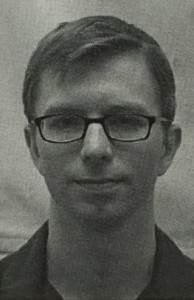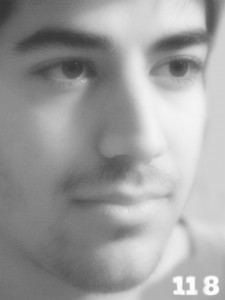As read at the Aaron Swartz Day Evening Event, on November 5, 2016, at the request of Noah Swartz Free Lauri Love Website
By Mustafa Al-Bassam (friend of Lauri)
Lauri Love is a computer scientist from the UK, who was a long-time friend of Aaron Swartz. He is facing extradition to the United States for various CFAA charges, including his alleged involvement in a series of online protests that followed Aaron’s persecution and untimely death. He is being pursued by the US criminal justice system for allegedly protesting abuses of that same system, with prosecutors in three US court districts accusing Mr Love of hacking into various government websites.
In July 2015, Lauri was arrested by UK officials on the request of the US government, who had issued several indictments and corresponding extradition warrants. The FBI and Department of Justice allege that Lauri has been involved in hacking into various governmental agencies, including the US Army, NASA, the Federal Reserve and the Environmental Protection Agency. Britain’s National Crime Agency had actually arrested Lauri two years before but never found enough evidence to charge him. Now he is facing extradition to face charges in the United States.
Lauri’s case bears very close resemblance to that of Gary McKinnon’s, who fought a 10 year battle against extradition to the US. Gary was accused of hacking into US military and NASA networks. Gary ultimately won after Home Secretary Theresa May blocked the extradition due to concerns over Gary’s mental health as he was diagnosed with Asperger’s Syndrome and battled with depression and anxiety.
Like Gary, Lauri is also diagnosed with Asperger’s Syndrome and suffers from depression and anxiety; he needs to be close to his family and needs health care that he would not be able to access in the US prison system. Human Rights Watch, reporting on the state of US prison conditions, has noted “disturbing delays in providing vital medical help” and “serious concerns about the overall quality of medical help for federal inmates.” I’m sure most of you are aware of the lack of adequate care in the US prison system, and those of you who have been following Chelsea’s case know how her recent suicide attempt resulted in being sentenced to solitary confinement. In the UK a suicidal inmate would instead be offered the help they require, rather than being punished. Lauri’s family has serious concerns about this as he has a long history of suicidal tendencies. If extradited, he would be thrust into a cell an ocean away from the support system that has sustained him.
On September 2016 a British Judge ruled in favor of extradition, passing the case to Secretary of State Amber Rudd. While Lauri can appeal to the High Court, the Secretary of State no longer has power to block the extradition on human rights grounds like in Gary’s case. This means that Rudd will have no choice to approve the extradition.
In light of this, and thanks to campaigning by the Courage Foundation and friends, 114 British Members of Parliament have recently signed a letter to Barack Obama to call on him to stop Lauri’s extradition. Support from the British public and politicians has been immense, but unfortunately there has been little attention bought to this case in the US, which is much needed.
If Lauri were to be extradited, even if he survived his time in prison awaiting trial, it’s likely that a sentence given to him by a US court would destroy his life. While in the UK it’s common for convicted hackers to return to a normal life within a few years, the US justice system could easily sentence Lauri to a nearly life long prison term, or fine him for an amount large enough that he would spend the rest of his life paying it back. His US charges would land him up to 99 years in prison.
I myself was threatened with extradition to the US by the FBI in 2011 due to my involvement in hacktivism. My case ultimately ended up being heard in the UK, and I ended up relatively unscathed having spent no time in jail, compared to my co-defendants in the US, including Barrett Brown and Jeremy Hammond, who are still in jail to this day. I do not wish for anyone else to become another victim of the disproportionate US justice system, including Lauri.
We call on friends in the US who are concerned about the unjust nature of the CFAA, the overly harsh US sentencing system and the mental health limitations of the US prison system to campaign and raise awareness for Lauri’s case. The US justice system has international consequences, and it would be extremely powerful if American citizens campaign in solidarity on behalf of international citizens in recognition of these harsh laws.
Please spread the word about Lauri’s case. You can find out more at freelauri.com. I hope that some of you will spend your time tonight talking about how to raise awareness for those, like Aaron, who find themselves at risk of being crushed under the US’s overly harsh, outdated, and misused hacking laws.


